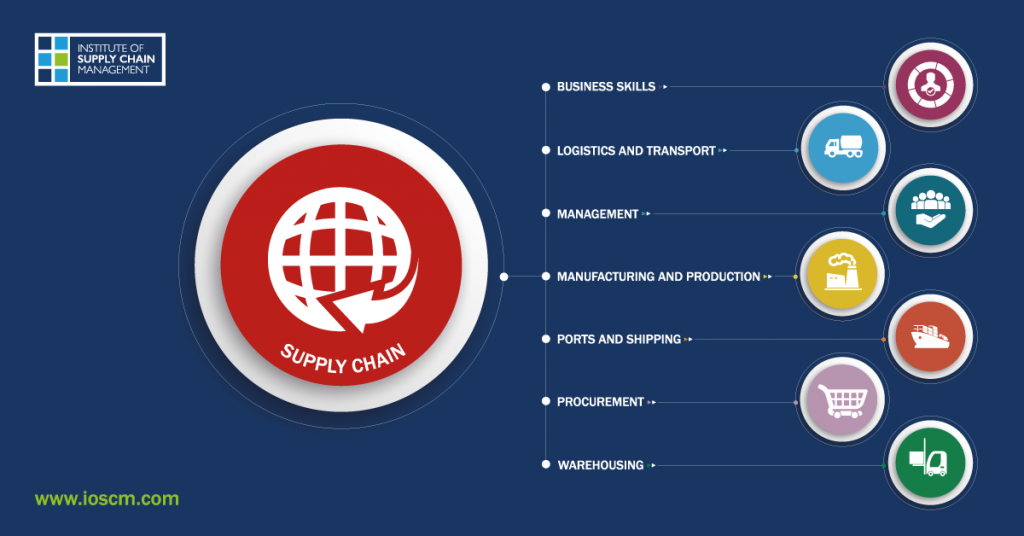What Would the World Be Like If Logistics Didn’t Exist?
Logistics is an irreplaceable part of the modern world. Everything consumers and businesses need is being shipped and transported from one place to another, often this includes different countries. The routes are being planned, organised, and managed to the finest detail and behind every successful delivery is a team of people, who carefully monitor every stage: from placing an order to warehouse management, the itinerary, means of transportation, and the items destination.
Have you ever thought about what would have been if logistics didn’t exist? How would we order online and get the products or services delivered to us conveniently? Would we have the technological progress we have today if global supplies were limited or unavailable? Let’s explore!
The History of Logistics
Today, logistics is a complex process that delivers products to any destination in the world at any set time, cost, and conditionality. However, logistics wasn’t always the way we experience it now. According to the Hopkins Distribution Company, the beginning of logistics can be traced back to Ancient Greek and Roman times. Can you guess what exactly triggered people’s logistics knowledge in the past? Let me give you a hint – the Classic Warfare.
The Ancient Greeks and The Romans
F.J. Lazenby, who investigated the Ancient Greeks, defined logistics of that time as the practice of moving, quartering, and providing troop supplies. The troops usually moved on foot, on horseback, or by sea. To ensure the army was always prepared for the enemy attack, the Greek commanders tended to choose the best route and vehicles for their soldiers. For example, soldiers could not move in wagons as wagons were impractical and slowed down the troops. They couldn’t also transport their horses by sea as this scheme limited the army in numbers, which could have been damaging in case of an unexpected enemy attack.
What concerned Romans, their major victories in battles belonged to the “inexhaustible supplies of provisions and men”, as observed by Polybius. Romans created an excellent logistical system that allowed them to use all the military resources they had effectively. The Roman Nation believed that supply was important on both strategic and tactical levels, forming an outstanding weapon that also determined war decisions based on the current military supply. Julius Caesar, Rome’s greatest military general, always used logistics in his strategies to conquer the world. The Roman Empire could have conquered all the globe if it did not disintegrate.
From the Middle Ages to Industrial Revolution
The Middle Ages gave logistics a newer direction to pursue through establishing the supply roads and warehouses to store goods. Local forts and castles became the destination points that acted as remarkable storage places. During the Industrial Revolution, logistics obtained new technological supply means of railroads and large ships.
World War II and Postwar Times
Industrialisation expanded even more with World War II, the use of motor transport, advancements in transportation systems, and communication. The war produced a necessity to possess large shipyards with ships to supply goods and engage in commerce, however, not for the business, rather for war purposes.
Logistics became more of a business tool only after World War II. As it was the time when the world experienced massive rebirth and renovation from the war aftermath, logistics became quite valuable in any emerging business. The process required transportation of products from point A to point B and included order filling, product distribution, warehousing and storage, planning of production, and customer services. With the development of logistics and consumer demand, the industry has scaled and gained momentum and even evolved to another level. Now, outsourcing the processes of supply chain management is an ordinary practice; numerous startups appear on the market and offer transportation and tracking of goods, businesses that were on the market long before offer newer ways of product delivery, and these operations in logistics are prone to evolve further.
Would humanity have a future without logistics?
According to Statista, Logistics Industry is a solid backbone of international trade these days. Both Logistics and transportation have become powered by technologies and advanced in global services provision. Logistics includes transporting (cargo by land, air, and water), storing (warehouses and technological management of goods), delivering (b2b, b2c, c2c supply chain networks). What if we hadn’t had these opportunities?
Imagine, Logistics was not given much attention in Ancient Greek times and all of the transportation, storage, and delivery processes were carried out manually, chaotically, without logic, no real plans or routes.
How many things would we have been deprived of? For example, we couldn’t drink coffee as it is transported from Africa, Asia, Indonesia, and Latin America. Or, we wouldn’t get hardware gear as the countries producing it like China would have been unreachable.
How many great inventions wouldn’t have gotten to see the world? Just because some parts and items were hard to find and difficult to transport.
What’s more, living in a world without logistics would have shaped another future for us, a more medieval one. We wouldn’t have got to experience digitisation, 5G, mobile usage, expansion of communication possibilities, new scientific discoveries, groundbreaking medical treatment, etc. Millions of pounds of revenue would have been lost, as the global economy would not exist. That’s how important logistics progress is for humanity.
Final Thoughts
Logistics is vital to modern times. With its help, we get so many opportunities to grow and advance technologically, scientifically, and financially. Which, in turn, support our well-being. If logistics didn’t exist, we could have faced the future we have today in the following centuries or beyond. It’s a great advantage that logistic software companies allow us to continue to advance even further, discover more, develop better and ensure our future is brighter.
Author Bio
Nazar Kvartalnyi has a Master’s Degree in Computer Science and Mathematics. He is a Microsoft certified professional and .Net specialist with experience in project management and mentorship. In 2015, he co-founded Inoxoft, and over the past six years, he has had the opportunity to share his expertise with a wide audience in his role as COO.
If you want to improve your knowledge of modern logistics, or the global supply chain, IoSCM can help. Take a look at our wide range of courses and qualifications to find out how!


